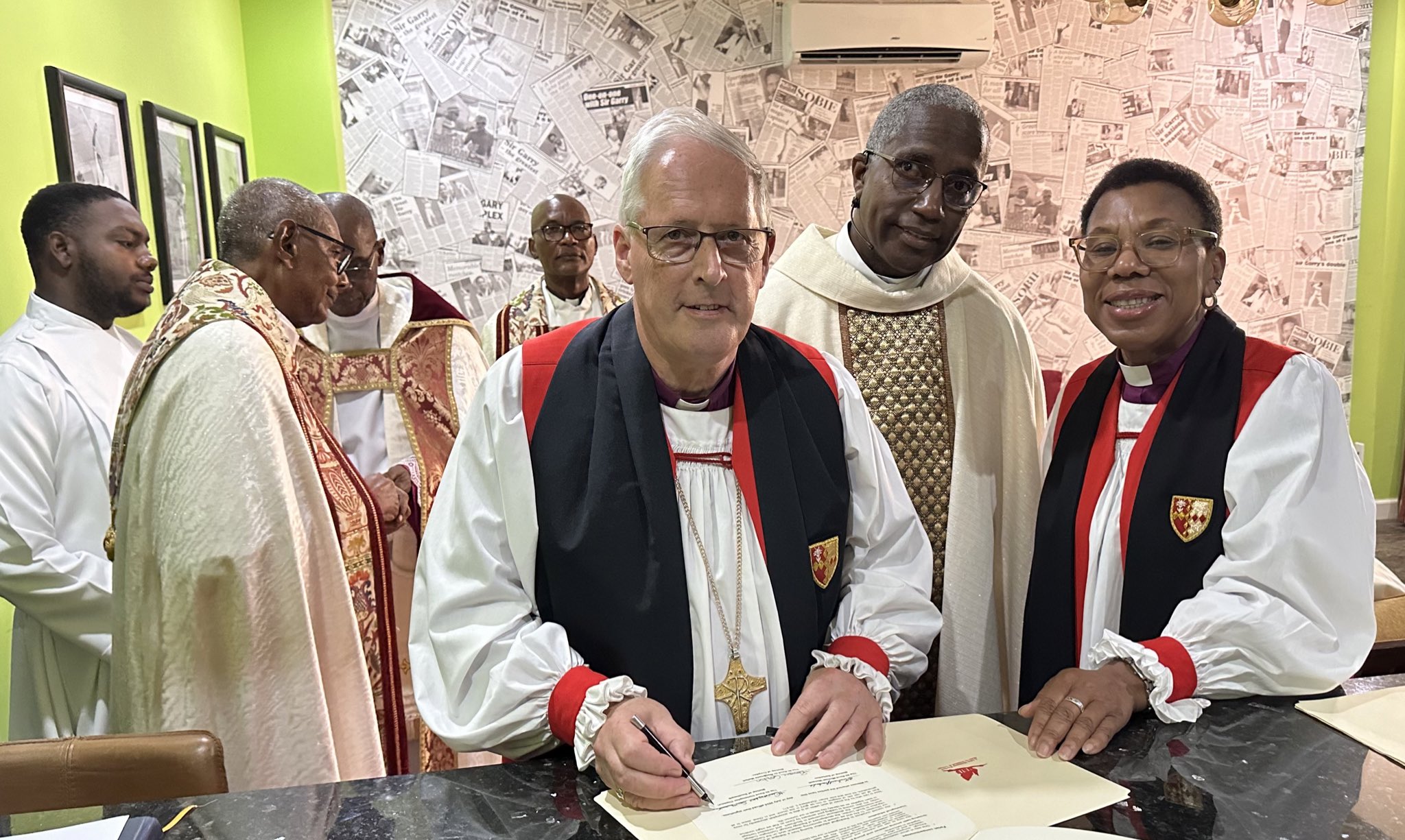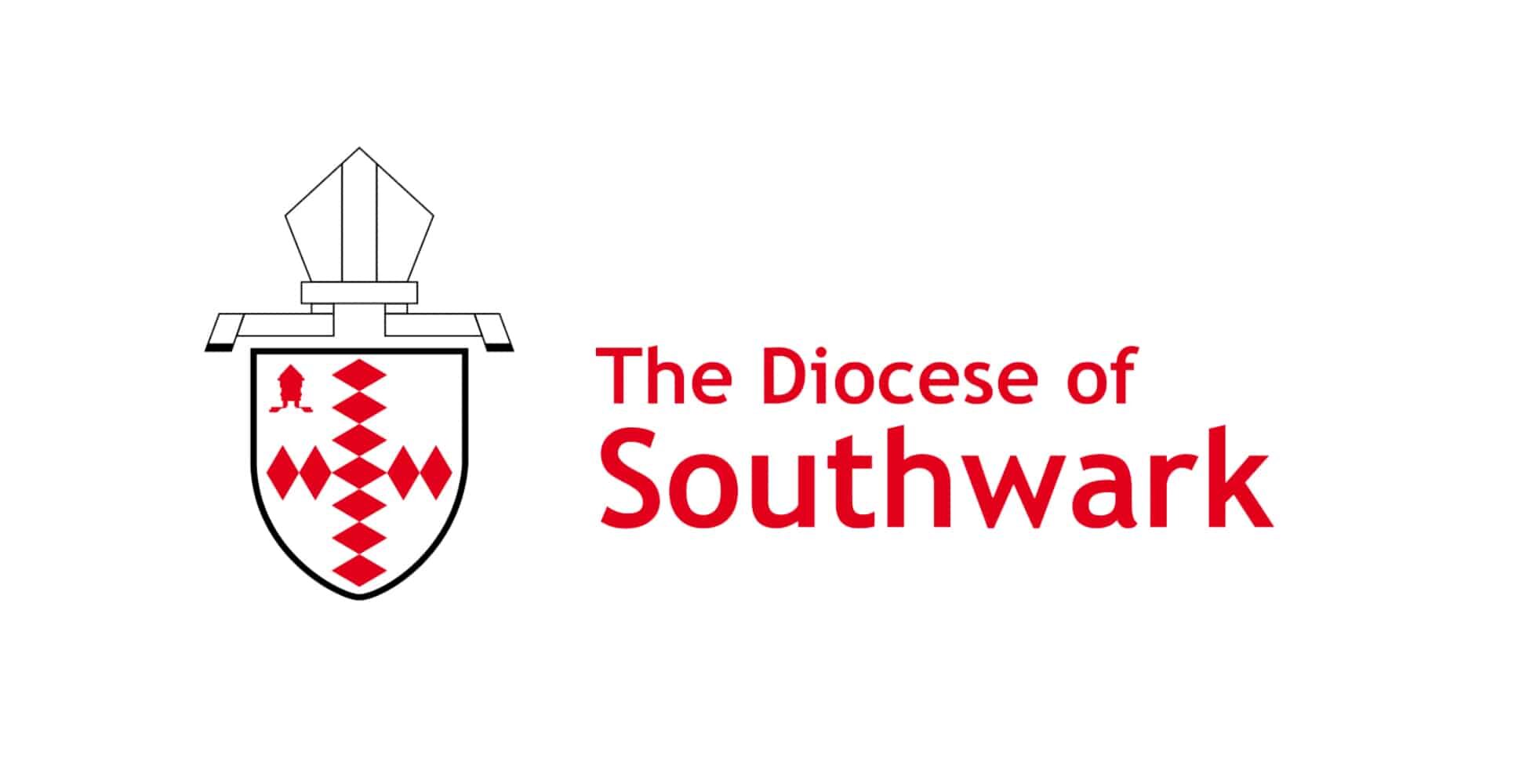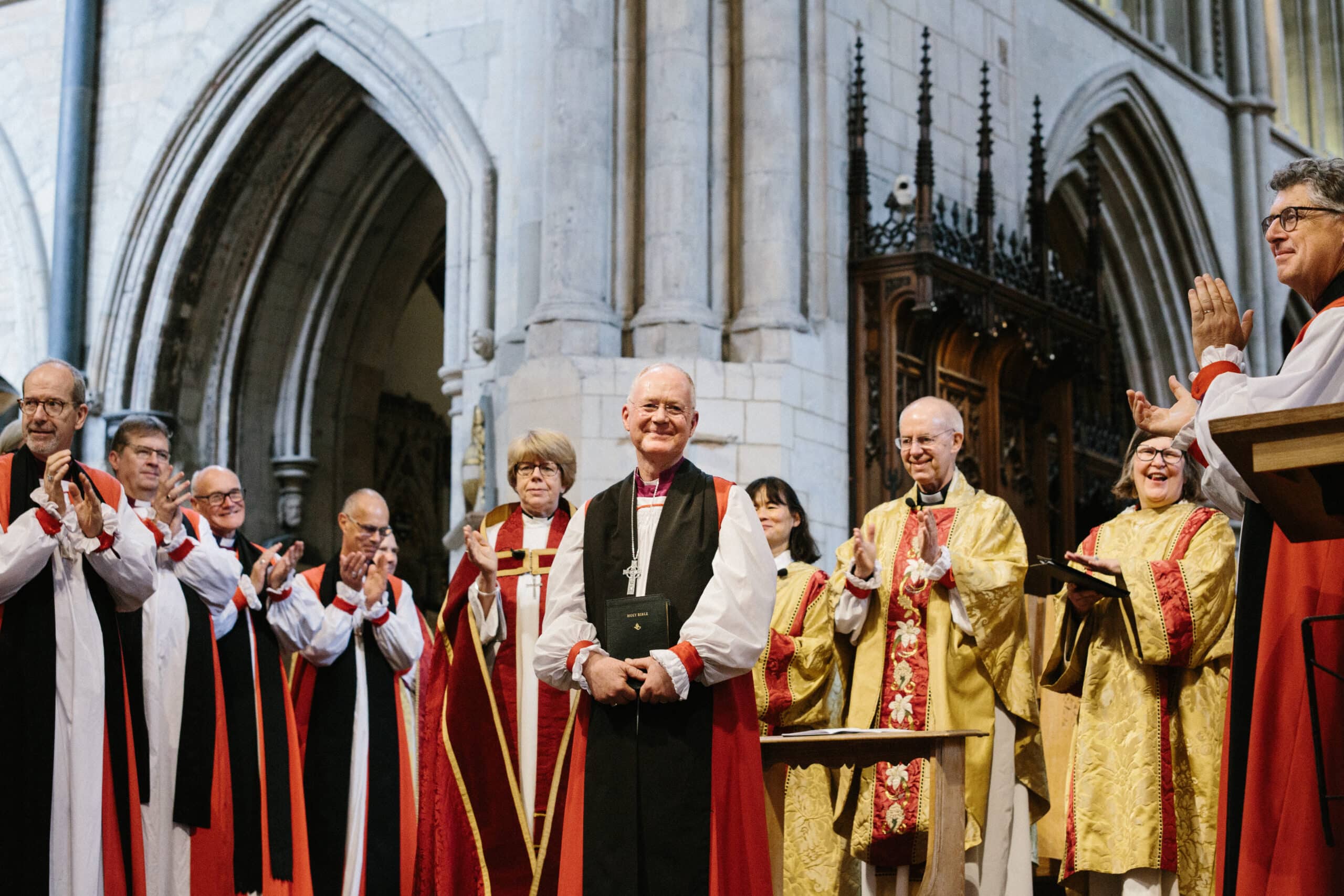As we are approaching the beginning of a new liturgical year at Advent with all its great and joyful promise, this is a good opportunity both to look back at 2022 and also to look forward into 2023. I have been encouraged this year to see parishes, chaplaincies, and our other worshipping communities recovering a strong sense of mission and purpose, proclaiming Christ crucified and risen, as we have continued to emerge from the pandemic. Across the Diocese I have seen lay and ordained serving God’s people in the communities where, in God’s eternal providence and love, they have found themselves. Our Diocesan Conference at the beginning of September – so carefully, thoughtfully, and effectively delivered by Canon Jay Colwill and his team – brought together all those, lay and ordained, who hold my licence as ministers of the Gospel. Together we prayed and we listened. Old bonds of friendship were renewed after the enforced separation of the pandemic, and new relationships and bonds of affection were forged. It was joyful and moving to see just how diverse Southwark really is across all the vectors of diversity, and to see people worshipping and working together. I am more and more convinced that this diversity is to be received with thanksgiving because it is God’s good gift to us.
When Archbishop Rowan Williams gave me his charge when I became your Bishop on the feast of St Antony of Egypt in January 2011, he asked me to focus on six things, the fifth of which was – and I quote – “To promote the cohesiveness of the Diocese and to encourage clergy and laity to engage with one another across respective expressions of Anglican faith; to nurture and value the gifts of all in the service of the mission of the Church embracing the openness the Diocese has to different traditions and perspectives.” Along with commitment to evangelism, mission, social justice, and developing a common vision and common purpose, I have made Archbishop Rowan’s charge a priority of my episcopate.
We have made considerable progress in Southwark, for example with Synod’s unanimous endorsement of our Anti-Racism Charter, and our commitment to carbon net zero. We have our first female member of the episcopal team in Bishop Rosemarie. Where it is requested, I extend episcopal care through the Bishop of Fulham and previously through the Bishop of Maidstone, working closely, cordially, and with great mutual respect for the contributions their respective traditions make to our common life and for them personally. In this Diocese we have placed our resources where needed to support mission and ministry in each of our parishes. In addition we have Conservative Evangelical BMOs which have entered in good faith into the diocesan family, as well as Catholic and Charismatic resourcing churches. Our pathways for lay ministry have been reimagined. Our Pioneer Ministers are flourishing. We have an Eco church, an arts ministry, and the Church Commissioners are this year investing substantially in Bubble Church, pioneered at the Ascension Balham during the various pandemic lockdowns. We have journeyed through the pandemic in a costly but resilient way and we have much to give thanks for, but we all know we still have some way to go before we can be confident that the Church is a welcoming and safe place for all, somewhere all can flourish without fear of discrimination or prejudice. Anything less falls short of the abundant life Christ came to bestow (John 10. 10). This is something upon which I venture to suggest we can all agree.
As we look forward to 2023, then, one of the areas where the Church of England is thinking and praying is the area of sexuality. The Church of England has committed itself to the Living in Love and Faith process, which has produced extensive resources for theological reflection and an important set of pastoral principles. It has been a significant commitment to praying and listening. Those who have used the materials in their parishes have found it beneficial, even if they found things with which to disagree. The feedback to the National Church from this Diocese far surpassed many others and this is encouraging. The purpose of LLF has not been to ask people to change their convictions but to listen in respect and mutual love to the stories of others whose experience and identities are different from theirs. Some people have changed their minds, one way or another, about sexuality; some have found their current view and convictions confirmed. I am grateful to those parishes that engaged with the process and are holding with it – even when it has been uncomfortable.
The House of Bishops will consider what the next steps might be now that LLF is concluding. So far there has only been one meeting of the College of Bishops to begin to take stock as the process comes to determination. There will be further meetings in the coming weeks. One thing is certain – there is no will to kick a decision into the long grass. The Church needs to conclude its conversations in this area and concentrate on the proclamation of the Gospel, the service of God’s people, and the care of creation. There are five marks of mission and not one of them mentions sexuality. I will always remain in listening mode as I seek to do on everything, and in the coming weeks I shall be participating in a number of meetings: including with members of the Diocesan Evangelical Union as well as with clergy identifying as LGBTQIA+.
Whatever the House of Bishops recommends to General Synod, there will be disappointment somewhere. A little change will disappoint those who want none and those who want great change. No change will disappoint those who want some or a great change. And great change will disappoint those who want none, or some. Winning, as they say, is not an option. But in God’s grace, and with the Lord being our Helper, I hope that we do not see this conversation as something that is to be won or lost. I pray that the conversations we have had will make the Church safe for all God’s people – and I pray that the conversation we shall have over the next year will do the same. I also pray that this will be a less toxic area for my successor. I bear the scars of some of those things which were projected onto me particularly in my first years in office; but I give thanks that we have moved on in very encouraging ways, particularly in a growing mutual regard across the Diocese when dealing with our differences.
The Bishop of Oxford published the results of his thinking a few days ago and, as you can imagine, people have asked me to share mine. I have kept my own counsel on this subject not because there is a three-line whip in the House forbidding Bishops to speak. That is simply not the case. I kept my counsel first because as a Bishop I have responsibility to maintain the unity among the faithful of this Diocese. As the Ordinal says, Bishops are “principal ministers of word and sacrament” and “chief pastors”. I take this responsibility very seriously. But I have also kept my counsel because I have wished our parishes – and indeed the whole Church of England – to be free to engage in LLF fully. It is not a Bishop’s job to stifle the work of the Holy Spirit – and shutting down good, healthy and prayerful conversations is a sure sign that the Spirit, who enlightens our God-given reason, is being silenced.
Now, however, that we have reached this stage of the LLF process it is time for me to give you my view. When the Bishops meet to discuss the next steps they will not gather as people considering this matter for the first time. We will meet together as people who have been engaged in a very long process of reflection. We have as a Church been praying and thinking for many years, from the time of the Woolfenden Report which was published shortly after my first birthday – and with many, many reports since. The discernment, then, is not what Bishop A or Bishop B thinks individually but what we as a Church discern together, journeying forwards in faith and hope and love. I offer my thoughts humbly and as part of an ongoing conversation with my brother and sister Bishops and indeed the whole Church. I want to begin by saying clearly that I rejoice and give thanks for all God’s people in this wonderful Diocese regardless of their sexual orientation – therefore including all those who identify as LGBTQIA+.
The Vacancy-in-See Statement of Needs drawn up in 2010 after broad consultation described Southwark as “A Growing Diocese, An Open Diocese and A Global Diocese”, stating the following: “Over the past generation the Diocese has become a place where the ministry of lesbian and gay clergy and laity can flourish in response to God’s call in accordance with the ethical teaching of the Church of England. We want to continue this tradition, and we need a Bishop who will lead us in further dialogue between people with differing perspectives on matters of human sexuality.” Fellow members of Diocesan Synod, my beloved brothers and sisters in Christ, this is our reality and I have sought to honour it as your Bishop, in particular in promoting a culture where we all speak well of each other.
As I have said before, I do not expect to see the marriage canons changed in my lifetime. I also said publicly before the Lambeth Conference that the Church of England has for a long time had a polity in which the Bishops in each and every Diocese encourage partnered gay and lesbian ordinands and clergy to consider civil partnership. We already respect the dignity of same-sex unions in this regard and we are not being honest with ourselves if we say otherwise. The civil law of the United Kingdom – and of other countries – has moved to legislate for same-sex marriage. Some have made the case for the Church to change the marriage canons. But I observe that it is theologically coherent to conceive of vocational and covenanted relationships as a category that includes marriage as one constituent and same-sex unions as another. It is inaccurate to say that marriage is the only form of covenanted relationship because it has long been the wisdom of the Church to bless those single people who see their life in terms of a covenant with God, whether they live that covenant in community or not.
On this last point, I want to take the liberty of making a personal observation. The Word made Flesh lies at the heart of the Incarnation: Jesus was born into a human family and remained single and unmarried through the whole of his earthly life. As a single bishop I am regularly asked the absurd question, “Do you have family?” I always answer in the affirmative and say I give thanks to be part of a close loving family, knowing full well I have not answered the question in terms of what I was really being asked. I am strongly committed to upholding family life and family values – the bedrock of society and our personal well-being – but please do not exclude single people like me through a too casual use of language: we all have and belong to families, thank God. The Church needs to be more caring about the growing number of people remaining single – a task which lies beyond the LLF process.
The Church’s polity concerning civil partnerships is the reality of our present situation, even if it is largely unacknowledged. I support a generous pastoral provision that respects freedom of conscience by the provision of a liturgy of affirmation and commitment for same-sex couples and a conscience clause that means no priest is required to officiate at such a service. The situation in which we find ourselves is almost an exact parallel to that about the remarriage of divorcees a generation ago in my first years in Holy Orders. I am less sure that it bears comparison with the debates surrounding the ordination of women – not least because the precedents set by the Five Guiding Principles about episcopal care would not translate easily to the context of a change in pastoral provision because it raises a different order of question about episcopacy. The Church has never required agreement on pastoral matters before gathering to break bread together. Indeed, it is the breaking of bread that allows us to live with difference. I also support on ecumenical and Anglican inter-Provincial grounds the removal of penalties for those clergy who contract a same-sex marriage, either civilly or in one of our sister Churches with whom we are in full communion.
In making my view clear, I am aware that some here will be disappointed that I advocate a proportionate change and others that I do not advocate a great change. I have a responsibility to ensure to the highest possible degree the unity which is Christ’s command to his Church. I also have a responsibility to ensure that the Church is safe for everyone – and at present it is not safe for those who are in same-sex unions. But we must also take care that we do not make the Church unsafe for those who in conscience cannot accept same-sex unions – making accommodations with mutual respect and forbearance is a defining characteristic of Anglican identity.
I am glad this is not a winning or a losing game because the diversity “across respective expressions of Anglican faith” that Archbishop Rowan charged me to nurture is truly God’s gift. The Diocese of Southwark is a microcosm of the Anglican Communion, as Archbishop Josiah has said, and I have delighted to repeat. Let us rejoice and be glad that this is so. This means the Diocese of Southwark has space for each of us – with human dignity and freedom of conscience protected, and brothers and sisters worshipping together across all the characteristics that make us unique and that constitute our personhood – serving the same Lord who loves each and every one of us so deeply and eternally that he sent his only-begotten Son to save us.






